Whether you’re venturing into the world of skincare for the very first time, or you’re a seasoned skincare pro, it always pays to make sure that you’re familiar with the basics. When it comes to a skin care routine, Lionesse has put together 11 things that everyone needs to know.
Every Good Skin Care Routine Starts with a Cleanser
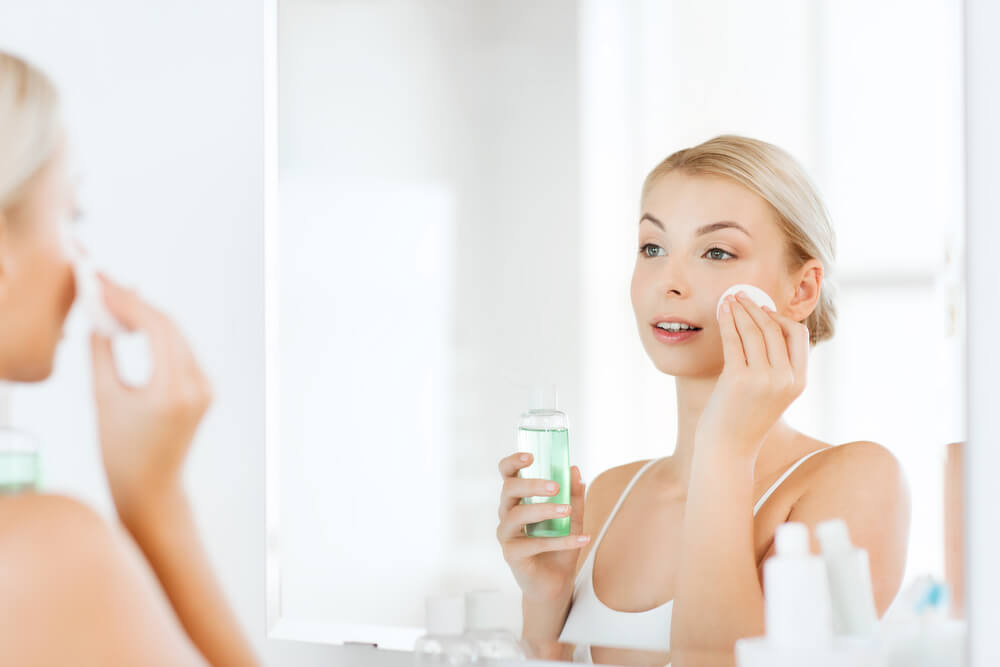
Everyone has their own individual skin care routine. For some, this will only consist of a couple of steps, whereas others may follow a 15-step regimen twice a day.
Whatever your skin care routine may be, a cleanser always needs to be the very first step.
Why?
Because, although you may not be able to see it with your naked eye, the surface of your skin is loaded with dead skin cells, excess oil, and other unwanted impurities.
Applying a skin care product over the top of this prevents that product from coming into direct contact with your skin. It’s much harder for the ingredients to actually reach your skin cells, meaning that the product you are using won’t be as effective as it otherwise would have been.
Plus, applying skin care products to dirty skin only pushes all of that dirt deeper into the pores. This then leads to inflammation and breakouts, which nobody wants to be dealing with!
A simple cleanse at the start of your skin care routine will ensure that all of the other products you use are able to work to their full potential. If you don’t yet have a go-to cleanser, the Lionesse White Pearl Facial Cleanser is a great choice!
Some Cleansers Do More Harm Than Good
While we’re on the topic of cleansers…
Did you know that some can actually cause serious problems for your skin?
This is one mistake that many skin care beginners make. They choose a cleanser that appeals for whatever reason, but it then ends up being far too harsh for their skin. A harsh cleanser strips away your skin’s natural protective barrier, which then leaves your skin vulnerable to environmental damage and dehydration.
A gentle cleanser will not only contain cleansing agents, but it will also be packed with ingredients that leave the skin feeling hydrated and soothed.
Know Your Skin Type

Before using any product on your skin, you need to first know what your skin type is.
Why is this so important?
Because some products aren’t suited for some skin types – the only way to figure this out is by identifying your own skin type.
How?
There’s an effective technique that you can try to work this:
- Cleanse your face (using a gentle cleanser)
- Gently pat your skin dry. Do not rub!
- Leave your skin bare and wait for 30 minutes
- Check your face for any sign of oil or shine. If you notice this all over, then you have oily skin. If you notice it on certain parts of your face, then you have combination skin
- Wait another 30 minutes
- If your skin is starting to feel a little tight, then this means that you have dry skin
- If your skin doesn’t feel oily or dry, then this means that you have normal skin
Once you know your skin type, you can then look for skin care products that are formulated for your specific skin type. This will ensure that the products you use address your skin’s unique concerns.
However, don’t get too comfortable…
Your skin type changes with age. Hormones can influence it too, meaning that you’ll need to keep checking that you know what your skin type is.
Skin Care Routines Don’t Have to Be Complicated
Many newbies believe that all skin care routines are long and complicated, but this isn’t the case at all. Granted, all of those 15-step Korean skin care routines that have been hitting the headlines lately haven’t helped this argument, but your skin care routine will be as complicated as you make it.
There are a few steps that are essential, such as:
- Cleanser
- Moisturizer
- Sunscreen
However, other than that, feel free to add in various products depending on what your skin actually needs. Some examples include:
- Toners
- Eye serums and creams (The Lionesse Amber Collection is dedicated to this!)
- Face serums
- Face and eye masks
- Facial oils
Skin Care Products Should Be Applied in a Specific Order
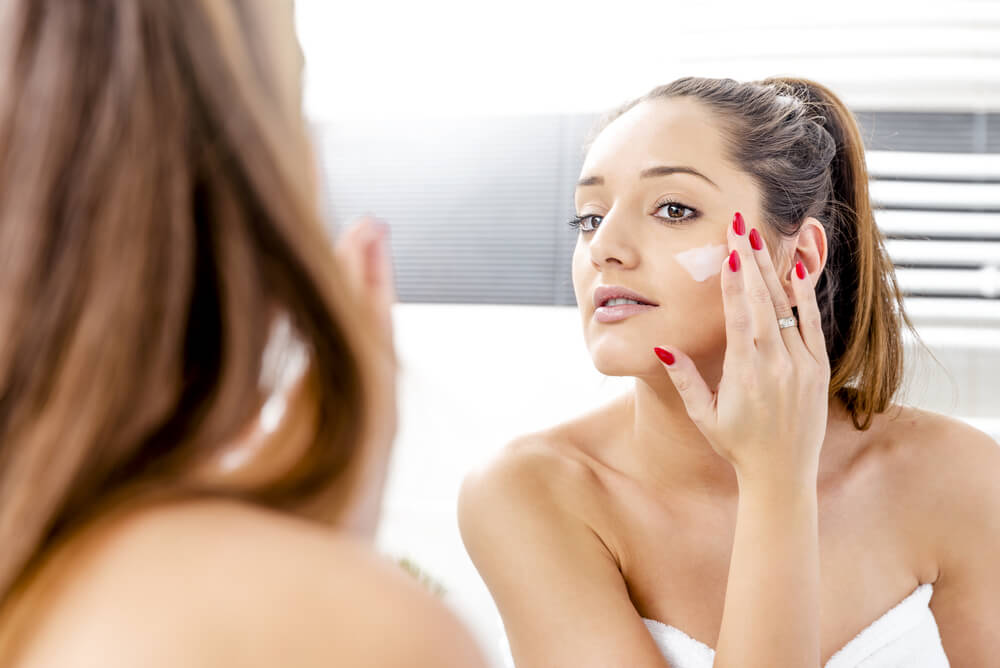
Once you’ve amassed a good collection of skin care products (and this really doesn’t take very long!), it’s time to make sure that you’re applying them in the right order.
Again, don’t worry, this doesn’t need to be complicated.
There’s a simple rule that you can follow here:
Start with the lightest product and then work your way up to the thickest and heaviest.
This means applying essences and serums before creams and oils. This ensures that the heavier products don’t prevent the lighter ones from penetrating through, which allows them all to work well.
Sunscreen Needs to Be Worn Daily, Throughout the Year
As much as you may love it, the sun is your skin’s worst enemy.
This may sound a little dramatic at first, but that’s only because you weren’t aware of this fact:
Up to 80% (or very possibly 90%) of all of the visible signs of facial aging are caused by the sun. This includes everything from the appearance of fine lines and wrinkles to the visibility of sagging skin and dark spots. Let’s not also forget that the sun is responsible for a number of skin cancers.
This makes sunscreen absolutely essential, even in the winter. While you may not feel the sun quite as strongly during the colder months, those damaging UV rays are still there. In fact, snow and ice can double your UV exposure. Even on overcast days, up to 80% of the sun’s UV rays can pass through those clouds, making it so important to wear a sunscreen every day of the year.
Look for a broad-spectrum formula. This means that the sunscreen will protect you from both UVA and UVB rays. Make sure that the SPF you choose is at least 30 – this is the recommended level to provide adequate protection.
One other thing to remember…
You’ll need to regularly reapply your sunscreen throughout the day. The effects of a sunscreen will only last a few hours, so keep your skin fully protected by topping up a couple of times a day.
Your Diet Directly Impacts Your Skin

You are what you eat.
This is definitely true when it comes to your skin. The food that you put into your body will have a direct impact on how your skin looks and feels.
You probably already know which foods are considered to be unhealthy in general. Salty, fried, sugar-filled, and overly processed foods are all a big no-no. However, not only should these be avoided for health reasons, but they also cause havoc to the skin.
Dehydration, inflammation, imbalances – these are all issues that you’ll notice if your diet contains large amounts of the above.
On the other hand, fill your plate with plenty of colorful fruits and vegetables, along with pulses and whole grains, and your skin will thank you.
Of course, there are some foods in particular that are truly game-changing when it comes to your skin:
- Orange and yellow fruits and vegetables, such as carrots, sweet potatoes, and apricots
- Leafy greens
- Eggs
- Oily fish, such as mackerel and salmon
- Nuts
- Berries
- Dark chocolate
Natural Isn’t Always Better
Keeping things natural is becoming increasingly important to more and more people these days.
When it comes to certain aspects of your life, such as your diet or the clothes that you wear, natural definitely wins out over synthetic.
However, when it comes to skin care, things are a little different…
For starters, just because an ingredient is natural doesn’t mean that your skin will be able to tolerate it. Many natural ingredients are known irritants and allergens.
There also happen to be many lab-produced ingredients that work incredibly on the skin. Take hyaluronic acid, for example. Although naturally found in the body, the version of this that you apply to your skin has been created in a lab, yet it still works wonders when it comes to leaving the skin looking plumper and softer.
These days, many brands are using the terms “natural” and “clean” as marketing buzzwords. It’s always best to just look for a product that addresses your skin’s needs and concerns, making that your priority.
Chemical Exfoliants are Gentler Than Physical Exfoliants
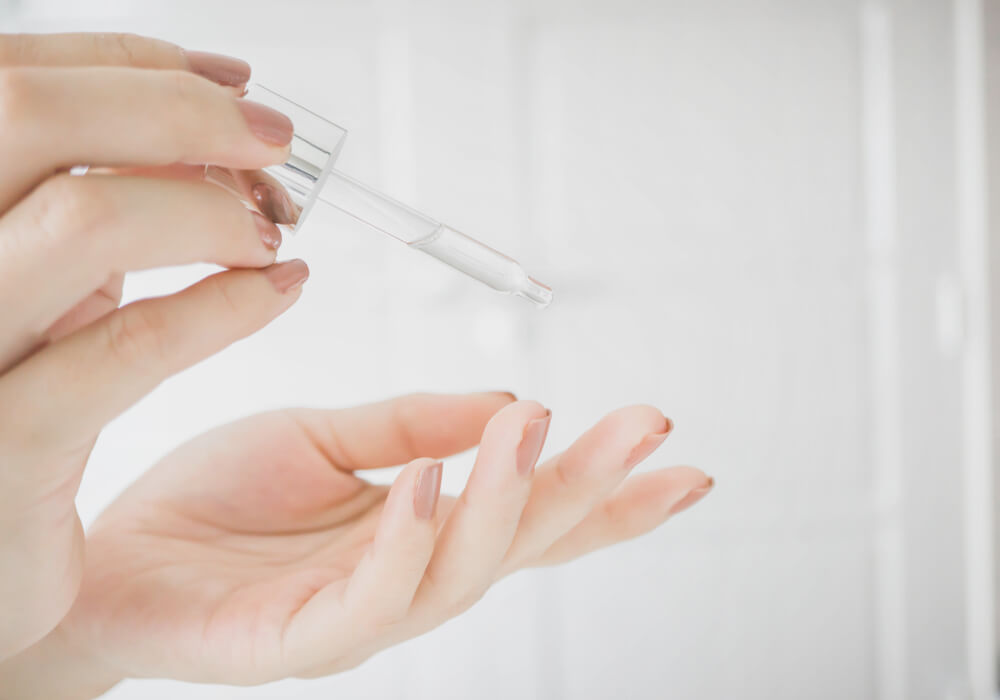
The word “chemical” immediately makes you think of something harsh, but this isn’t the case when it comes to exfoliants. In fact, most chemical exfoliants are derived from natural sources – after all, plants contain their own chemical compounds too.
What’s the difference between chemical and physical exfoliation?
Chemical makes use of specific acids to dissolve the sticky substance that holds dead skin cells on to the surface of your skin. On the other hand, physical exfoliants use abrasive substances to physically scrub away those dead skin cells.
This isn’t really an issue when it comes to the skin on your body. The skin here is quite thick, meaning that it can easily tolerate, as well as benefit from, a body scrub.
However, the skin on your face is up to ten times thinner than the skin on your body, meaning that you need to go for the gentler exfoliation option.
One other thing you need to know…
Chemical exfoliants also vary in strength. Some, such as glycolic acid, are known for being exceptionally powerful, while others, such as lactic acid, are much gentler.
Stress Plays a Key Role in Skin Health
Have you been feeling stressed lately?
If so, your skin has probably been acting up too. Many people underestimate the effect that stress can have on their skin, but understanding this will help you to give your skin the care it needs.
How does stress affect the skin?
When you are feeling stressed, your body produces a hormone called cortisol. This hormone helps your brain to deal with a stressful situation. In small amounts, there’s nothing wrong with this – it’s natural, and can even be helpful in many circumstances.
However, when you experience chronic stress, cortisol is constantly being pumped around your body. This is when things can start to go wrong…
All of that excess cortisol can have a seriously detrimental effect on your skin, leading to:
- Increased oil production, meaning clogged pores and acne
- Increased fine lines and wrinkles, due to the way in which cortisol breaks down the collagen and elastin in your skin
- A damaged skin barrier, meaning dryness and dehydration, along with increased sensitivities
So, keeping your stress levels down not only benefits your overall mental health, but it will also make a massive difference to your skin too.
Your Skin Care Routine Should Change with the Seasons
In the same way that you change your wardrobe with the seasons, your skin care routine needs to be adjusted too. Your skin has different requirements depending on the season, so you need to make sure that your skin care routine is catering to this.
For example, the air is much drier in the winter, leaving the skin feeling parched too. Thick and heavy products are often the only way to counter this.
However, natural oil production increases in the summer. Those thick moisturizers would be far too heavy for your skin at this point, making a lighter lotion a much better alternative.
As a beginner, finding a skin care routine that works for you can feel like quite the triumph. However, don’t get too stuck on what you’ve developed – you need to be flexible when it comes to adding in, and taking away, certain products, depending on what your skin is telling you.
There really is so much to learn when it comes to your skin. It is, after all, your body’s largest organ. This is why it makes sense to educate yourself on skin care as much as possible, beginning with the basics listed above!



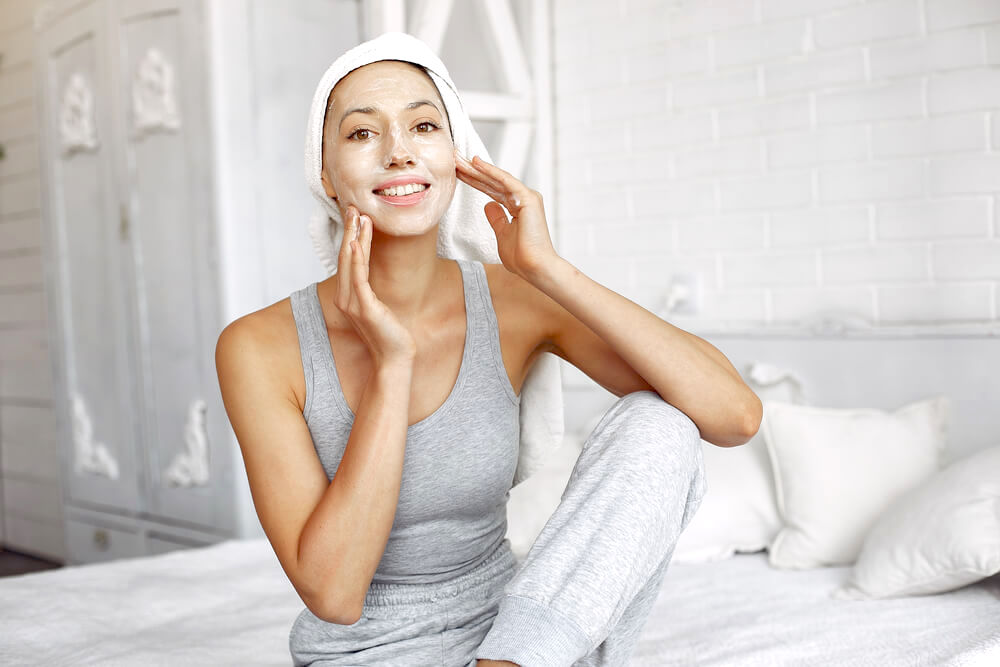


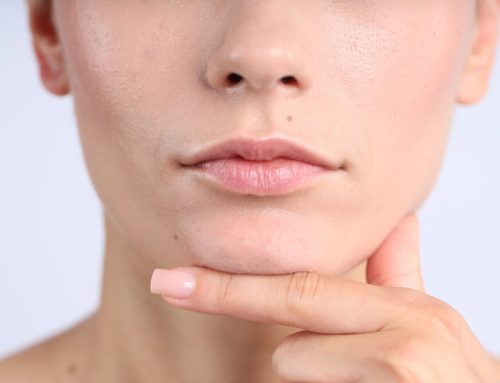


Leave A Comment